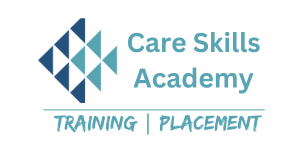In today’s world, nearly every electronic device, from smartphones to computers and household appliances, relies on Printed Circuit Boards (PCBs) to function. PCBs are the backbone of modern electronics, connecting and supporting all the necessary components for these devices to operate seamlessly. However, when these boards malfunction, it can lead to costly repairs or replacements. This is where the demand for skilled PCB technicians comes in. Enrolling in a PCB repairing course offers an excellent opportunity to gain specialized knowledge in diagnosing and fixing faulty circuit boards, providing a valuable skill set in the electronics industry.
What is a PCB?
A Printed Circuit Board (PCB) is a thin, flat board made of non-conductive material, typically fiberglass, onto which conductive pathways (tracks or traces) are etched. These tracks are designed to connect electronic components such as resistors, capacitors, transistors, and integrated circuits (ICs). PCBs can range from simple single-layer designs to complex multi-layer boards used in sophisticated devices.
Due to their widespread use in all types of electronics, learning how to repair PCBs is crucial for anyone interested in a career in electronics repair or for hobbyists who enjoy working with technology.
Why Take a PCB Repairing Course?
1. High Demand for PCB Technicians:
As electronics continue to dominate every aspect of our lives, the demand for skilled professionals who can repair and maintain electronic devices is at an all-time high. From consumer electronics to industrial machinery, PCBs are everywhere. A PCB repairing course equips you with the skills needed to troubleshoot and fix these boards, opening the door to a wide range of job opportunities in various industries.
2. Save Time and Money:
Learning PCB repair can be incredibly beneficial for both individuals and businesses. Instead of replacing expensive electronic devices when they malfunction, being able to repair the PCB can save significant costs. This skill is particularly valuable in industries where downtime due to malfunctioning equipment can lead to major financial losses.
3. Gain Hands-On Experience:
A good PCB repairing course offers hands-on training, where you’ll learn practical skills like soldering, desoldering, and the use of diagnostic tools. These courses often provide access to real circuit boards, allowing you to practice identifying common faults and implementing solutions. This hands-on approach ensures you’re prepared to handle real-world scenarios.
4. Stay Updated with Modern Technology:
As technology advances, so do the techniques used in PCB design and manufacturing. A PCB repairing course keeps you updated on the latest advancements in electronic components, tools, and repair techniques, ensuring that you remain competitive in the industry.
What Will You Learn?
A PCB repairing course typically covers a wide range of topics to provide a comprehensive understanding of PCB repair. Here are some key areas you’ll explore:
- Introduction to PCBs and Electronics: Learn the fundamentals of PCB design, structure, and the role of various electronic components.
- Component Identification: Understanding the different types of components (resistors, capacitors, diodes, ICs) and their functions in a circuit.
- Soldering and Desoldering Techniques: Mastering the art of soldering is essential for PCB repair. You’ll learn how to attach and remove components from the board using a soldering iron.
- Fault Diagnosis and Troubleshooting: Learn how to identify faulty components and broken connections using diagnostic tools such as multimeters and oscilloscopes.
- Circuit Tracing: Learn how to trace circuits on the PCB to find damaged or broken connections.
- Replacing Components: Understand how to safely remove and replace faulty components, ensuring the board continues to function properly.
- Best Practices and Safety: Working with PCBs involves dealing with delicate components and sometimes high voltage. The course will cover safety procedures to ensure proper handling of equipment.
Who Should Enroll?
A PCB repairing course is perfect for a wide variety of individuals:
- Aspiring Technicians: If you want to pursue a career in electronics repair or maintenance, this course provides you with the foundation to excel.
- Engineering Students: Engineering students focusing on electronics or related fields can greatly benefit from this course to gain practical skills.
- Hobbyists and DIY Enthusiasts: If you’re someone who enjoys tinkering with gadgets, this course will give you the expertise needed to repair your own devices.
- Entrepreneurs: Those looking to start a small business in electronics repair can gain valuable skills to offer PCB repair services.
Conclusion
A PCB repairing course offers a valuable skill set that is in high demand across many industries. From consumer electronics to industrial equipment, the ability to diagnose and repair PCBs is essential in today’s tech-driven world. Whether you’re looking to start a career in electronics or simply enhance your existing knowledge, this course provides a strong foundation in PCB repair. Gain hands-on experience, stay updated with the latest technology, and position yourself for success in the growing field of electronics repair.
Enroll in a PCB repairing course today and take the first step toward mastering the art of electronics repair

